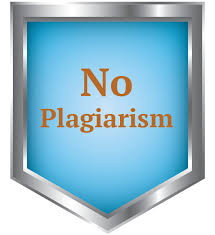 The culmination of any research paper is its conclusion chapter, a pivotal section that encapsulates the essence of the entire study. It serves as the final impression that readers take away, making it imperative that this section is polished to perfection. However, writing an effective conclusion can be a challenging task, requiring a meticulous review and editing process to ensure clarity, coherence, and impact. We understand the significance of a great conclusion chapter in solidifying your research's credibility and impact. Our team of experienced editors is dedicated to providing you with the guidance and expertise needed to refine and enhance your conclusion chapter. We offer reliable help with editing research paper conclusions, making our services go beyond mere proofreading. We ensure that your conclusion chapter flows logically and seamlessly, with a clear presentation of key findings and their implications. We also improve the clarity, coherence, and conciseness of your prose to make your conclusions more accessible to readers. We verify that your conclusions align with your research objectives, hypothesis, and methodology, thus reinforcing the overall message of your paper. We ensure that your conclusion chapter adheres to the appropriate style guide and citation format. With our expert project editing guidance, your conclusion chapter will shine, leaving a lasting impact on your readers and elevating the quality of your academic work.
The culmination of any research paper is its conclusion chapter, a pivotal section that encapsulates the essence of the entire study. It serves as the final impression that readers take away, making it imperative that this section is polished to perfection. However, writing an effective conclusion can be a challenging task, requiring a meticulous review and editing process to ensure clarity, coherence, and impact. We understand the significance of a great conclusion chapter in solidifying your research's credibility and impact. Our team of experienced editors is dedicated to providing you with the guidance and expertise needed to refine and enhance your conclusion chapter. We offer reliable help with editing research paper conclusions, making our services go beyond mere proofreading. We ensure that your conclusion chapter flows logically and seamlessly, with a clear presentation of key findings and their implications. We also improve the clarity, coherence, and conciseness of your prose to make your conclusions more accessible to readers. We verify that your conclusions align with your research objectives, hypothesis, and methodology, thus reinforcing the overall message of your paper. We ensure that your conclusion chapter adheres to the appropriate style guide and citation format. With our expert project editing guidance, your conclusion chapter will shine, leaving a lasting impact on your readers and elevating the quality of your academic work.
Relevant Changes Our Expert Editors Can Make In A Conclusion Chapter
Our editors can make several relevant changes to improve the conclusion of a research paper. They offer the best research paper conclusion chapter editing guidance, as this is a critical part of summarizing the key findings and their significance. Here are some changes and improvements that expert editors can make:
- Reiterate the Thesis Statement: Our editors can help ensure that the conclusion restates the thesis statement or research question to remind readers of the paper's main focus.
- Summarize Key Points: The conclusion should summarize the main points or arguments made in the paper. We can help make this summary concise and clear.
- Highlight Findings: We can emphasize the most important findings or results of the research, ensuring that they are well-structured and easy to understand.
- Discuss Implications: Our editors can help elaborate on the implications of the research findings. They can emphasize why the research matters, how it contributes to the field, and what potential real-world applications or policy implications it might have.
- Address Limitations: It's important to acknowledge any limitations in the research. We can help ensure that these limitations are discussed honestly and that the potential impact on the validity of the findings is considered.
- Suggest Future Research: We can assist in suggesting areas for future research that stem from the current study's findings. This demonstrates the paper's contribution to ongoing academic discussions.
- Provide Closure: Our editors can help create a sense of closure in the conclusion, making it clear to the reader that they have reached the end of the paper.
- Check for Consistency: We can ensure that the conclusion aligns with the introduction and the body of the paper, maintaining a consistent tone and message throughout.
- Revise for Clarity and Conciseness: Our editors can improve the clarity of the language used in the conclusion and ensure that it is concise and free from unnecessary jargon.
- Tailor to the Audience: Depending on the target audience (e.g., academic peers, policymakers, general readers), our editors can adjust the tone and content of the conclusion to suit their needs.
The Role Of Language And Tone In Enhancing The Quality Of A Conclusion After Editing
The language and tone used in the conclusion section of a research paper play a pivotal role in enhancing the overall quality of a well-edited paper. Here are several ways in which language and tone can make a difference:
- Clarity and Precision: The language should be clear and precise, ensuring that the reader understands the key takeaways from the research. Avoid jargon or overly complex vocabulary that may obscure your message. Clarity is essential for conveying the significance of your findings effectively.
- Summarization: The conclusion should summarize the main points of your research concisely. Use language that encapsulates the essence of your work, highlighting the most important findings and their implications. A well-written summary reinforces the key contributions of your research.
- Confidence and Authority: The tone should be confident and authoritative. Assert the validity and relevance of your findings without sounding overly self-assured. Strike a balance between confidence and humility, acknowledging limitations and areas for future research.
- Transition: Use transitional language to smoothly connect the conclusion to the rest of the paper. This helps readers follow your argument and see how your conclusion logically derives from your research and analysis.
- Avoiding Repetition: While summarizing key points is crucial, avoid simply restating what has already been said in the paper. Instead, rephrase and synthesize the information to offer a fresh perspective.
- Inspirational or Forward-Looking: Depending on the nature of your research, the tone can also be inspirational or forward-looking. Discuss the potential impact of your findings and how they may contribute to future research or practical applications.
- Emphasis on Significance: Emphasize the significance of your research within the broader academic context. Use language that underscores the importance of your work and its implications for the field.
 The process of editing the conclusion chapter is a critical step in ensuring that your work reaches its full potential. This chapter serves as the final impression that your readers will have of your research. Therefore, it is paramount that it is polished, concise, and effectively communicates the key findings and significance of your study. Seeking our conclusion chapter editors' help is a prudent decision, as it brings a fresh perspective and a keen eye for detail to your work. Our experienced editors can identify and rectify inconsistencies, improve the flow of your ideas, and ensure that your conclusion aligns seamlessly with the rest of your paper. They can also assist in refining your language, enhancing the clarity of your message, and eliminating any grammatical or structural errors that may detract from the professionalism of your work. In this era of rigorous academic standards and fierce competition, presenting your research in the best possible light is crucial. Engaging the services of our professionals who specialize in research paper editing can significantly elevate the quality of your conclusion chapter, helping you make a lasting impact on your audience. So, as you approach the final stages of your research paper, remember that our expert guidance can be the difference between a good paper and an outstanding one.
The process of editing the conclusion chapter is a critical step in ensuring that your work reaches its full potential. This chapter serves as the final impression that your readers will have of your research. Therefore, it is paramount that it is polished, concise, and effectively communicates the key findings and significance of your study. Seeking our conclusion chapter editors' help is a prudent decision, as it brings a fresh perspective and a keen eye for detail to your work. Our experienced editors can identify and rectify inconsistencies, improve the flow of your ideas, and ensure that your conclusion aligns seamlessly with the rest of your paper. They can also assist in refining your language, enhancing the clarity of your message, and eliminating any grammatical or structural errors that may detract from the professionalism of your work. In this era of rigorous academic standards and fierce competition, presenting your research in the best possible light is crucial. Engaging the services of our professionals who specialize in research paper editing can significantly elevate the quality of your conclusion chapter, helping you make a lasting impact on your audience. So, as you approach the final stages of your research paper, remember that our expert guidance can be the difference between a good paper and an outstanding one.
Help to Edit a Research Paper Conclusion | Academic Editing
 In academic research, the conclusion chapter is undeniably one of its most critical components. It serves as the final word, the culmination of rigorous investigation, and the ultimate impression that lingers in the minds of readers. Writing an effective research paper conclusion is an art, one that requires finesse, precision, and a keen eye for detail. Yet, even the most talented researchers may find themselves seeking assistance in refining their conclusions to perfection. This is where we come in, your trusted partner in academic editing. We take immense pride in our ability to offer the best research paper conclusion editing help. Our dedicated team of experienced editors comprises experts in various academic fields, and they understand the nuances of crafting a compelling conclusion that encapsulates the essence of your research. We understand that a well-edited conclusion can make all the difference in the impact and reception of your work. Our commitment to excellence extends to every project we undertake, and we employ a meticulous approach to ensure your conclusion is polished to perfection. Whether it's refining your language, enhancing clarity, or reinforcing the logical flow of your arguments, we've got you covered. We can elevate the quality and impact of your research paper's conclusion through professional editing help.
In academic research, the conclusion chapter is undeniably one of its most critical components. It serves as the final word, the culmination of rigorous investigation, and the ultimate impression that lingers in the minds of readers. Writing an effective research paper conclusion is an art, one that requires finesse, precision, and a keen eye for detail. Yet, even the most talented researchers may find themselves seeking assistance in refining their conclusions to perfection. This is where we come in, your trusted partner in academic editing. We take immense pride in our ability to offer the best research paper conclusion editing help. Our dedicated team of experienced editors comprises experts in various academic fields, and they understand the nuances of crafting a compelling conclusion that encapsulates the essence of your research. We understand that a well-edited conclusion can make all the difference in the impact and reception of your work. Our commitment to excellence extends to every project we undertake, and we employ a meticulous approach to ensure your conclusion is polished to perfection. Whether it's refining your language, enhancing clarity, or reinforcing the logical flow of your arguments, we've got you covered. We can elevate the quality and impact of your research paper's conclusion through professional editing help.
How To Formulate A Proper Research Paper Conclusion After Editing
A good research paper conclusion serves as the final impression you leave on your readers and should summarize your findings, discuss their significance, and suggest avenues for future research. After thorough editing, your conclusion should be concise and impactful, typically. Here's how to formulate a proper research paper conclusion:
- Restate the Research Question or Purpose: Begin by restating the research question or the purpose of your study. This helps remind readers of the context and objectives of your research.
- Summarize Key Findings: Concisely summarize the main findings of your research. Highlight the most important results and any patterns or trends that emerged during your investigation. Avoid introducing new information or data in the conclusion.
- Discuss Implications: Discuss the implications of your findings. Explain why your research is significant and how it contributes to the existing body of knowledge in your field. Address the "so what" question and clarify the broader implications of your work.
- Address Limitations: Acknowledge any limitations in your study, such as sample size constraints, data collection issues, or potential biases. Being transparent about limitations demonstrates a realistic approach to research.
- Offer Recommendations: Provide recommendations or suggestions for future research in the same area. Identify areas that need further exploration and describe how future studies could build upon your work.
- Conclude with a Strong Statement: End your conclusion with a strong, memorable statement that emphasizes the importance of your research. Connect back to your research question or purpose to create a sense of closure.
- Maintain Clarity and Conciseness: Keep your conclusion clear, concise, and to the point. Avoid unnecessary jargon or technical language that may confuse readers.
- Reflect on the Overall Contribution: Take a moment to reflect on how your research has contributed to the field and what your paper brings to the academic conversation.
Tips Our Experts Follow In Editing Your Research Paper Conclusion
Editing the conclusion of a research paper is crucial to ensure it effectively summarizes your work and leaves a lasting impression on readers. Here are the tips our experts follow when offering help to edit a research paper conclusion;
- Revisiting the Thesis Statement: We ensure your conclusion aligns with your thesis statement. It should reiterate the main argument and highlight how your research supports it.
- Summarizing Key Points: We summarize the main findings and key points from your paper. Avoid introducing new information or arguments in the conclusion.
- Addressing Research Questions: If applicable, we will restate the research questions or objectives and explain how they've been answered or addressed in your study.
- Highlighting Contributions: We emphasize the significance of your research and its contributions to the field. Discuss its implications and potential real-world applications.
- Linking Back to Introduction: We reference your introduction to create a sense of closure. Show how your research has come full circle, addressing what you set out to explore.
- Avoiding Repetition: While summarizing key points, we avoid repeating verbatim what you've already stated in the paper. Use different phrasing and focus on the broader implications.
- Being Concise: We keep the conclusion concise, typically around 10% of your paper's total length. Avoid unnecessary elaboration.
- Proofreading and Revising: We carefully proofread the conclusion for grammar, punctuation, and clarity. Revise it multiple times to refine its structure and content.
What Are The Do's And Don'ts In Editing A Conclusion Chapter?
Editing a research paper's conclusion chapter is a crucial step in ensuring the paper's overall quality and impact. Here are some do's and don'ts to consider:
Do's:
- Summarize Key Points: Summarize the main findings and contributions of your research. Reiterate the research questions and objectives.
- Link to Introduction: Connect your conclusion to the introduction, highlighting how your research addresses the initial problem or question.
- Provide Closure: Offer a sense of closure by wrapping up your argument and explaining its significance in the broader context of your field.
- Highlight Contributions: Emphasize the novelty or significance of your research and its potential implications.
- Avoid New Information: Don't introduce new data or ideas in the conclusion. Stick to summarizing what has been discussed in the paper.
Don'ts:
- Repetition: Avoid restating the same points from the main body of the paper verbatim. Instead, rephrase and synthesize.
- Overgeneralization: Don't make sweeping statements or unsupported claims. Keep your conclusions grounded in the evidence presented.
- Apologizing: Avoid apologizing for limitations or shortcomings in your research. Acknowledge them objectively without self-deprecation.
- Clichés: Steer clear of clichés like "In conclusion" or "In summary." Instead, use more engaging language to signal the conclusion.
- Ambiguity: Don't leave your readers hanging. Ensure that your conclusion leaves a clear and lasting impression of your research's significance.
 The conclusion of a research paper holds tremendous significance. It serves as the final impression you leave on your readers, summarizing your study's key findings and providing closure to your argument. Seeking our assistance in editing a conclusion can elevate the overall quality of your research paper, ensuring that your message is clear, concise, and impactful. We can transform a mediocre conclusion into a compelling one. Our editors with expertise in your field can refine your wording, enhance the logical flow, and ensure that your conclusion aligns seamlessly with your introduction and the body of your paper. We will pinpoint areas where you can reiterate the significance of your research, tie together the main points, and suggest adjustments to maintain the reader's engagement until the very end. Moreover, having a fresh set of eyes on your conclusion can help eliminate errors, improve grammar, and enhance the overall readability of your paper. Our attention to detail can make the difference between a conclusion that merely concludes and one that resonates with your audience, leaving a lasting impact. Seeking our assistance is a wise investment. It not only refines your writing but also ensures that your hard work and dedication shine through in a manner that is both persuasive and memorable. With us, you not only enhance the quality of your academic work but also increase your chances of leaving a lasting impression on your readers and contributing meaningfully to your field of study.
The conclusion of a research paper holds tremendous significance. It serves as the final impression you leave on your readers, summarizing your study's key findings and providing closure to your argument. Seeking our assistance in editing a conclusion can elevate the overall quality of your research paper, ensuring that your message is clear, concise, and impactful. We can transform a mediocre conclusion into a compelling one. Our editors with expertise in your field can refine your wording, enhance the logical flow, and ensure that your conclusion aligns seamlessly with your introduction and the body of your paper. We will pinpoint areas where you can reiterate the significance of your research, tie together the main points, and suggest adjustments to maintain the reader's engagement until the very end. Moreover, having a fresh set of eyes on your conclusion can help eliminate errors, improve grammar, and enhance the overall readability of your paper. Our attention to detail can make the difference between a conclusion that merely concludes and one that resonates with your audience, leaving a lasting impact. Seeking our assistance is a wise investment. It not only refines your writing but also ensures that your hard work and dedication shine through in a manner that is both persuasive and memorable. With us, you not only enhance the quality of your academic work but also increase your chances of leaving a lasting impression on your readers and contributing meaningfully to your field of study.








